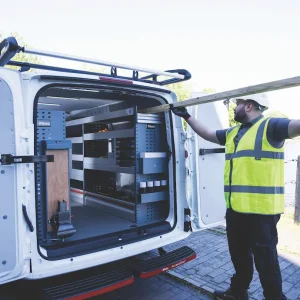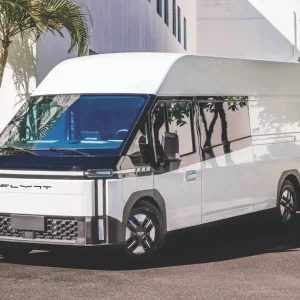It’s rare in the automotive industry that untapped areas of the marketplace open up to offer the chance for new players to flex their muscles and grab market share, but with electric vehicles that’s exactly what has happened.
British Gas is one of several firms looking to secure a stake in a market it’s hoped will grow in the coming years, having invested significantly in getting to grips with charging technology and the needs of the sector over the past couple of years. 
“It’s a brand new industry; we’re learning ourselves and able to help others to learn,” British Gas’s head of electric vehicles Andreas Atkins tells What Van? “We’ve managed to grow with the industry over the past 18 months.”
The firm has now installed more than 1000 of the 7000 electric vehicle charging points in the UK, 80% of which are at commercial or public premises, with the remainder being at residential locations.
“We’re taking it seriously. We’ve got a team I manage dedicated to the provision of all services around EV installation – the charge point process and support to installation and energy supply, getting the right costs and tariffs and EV point service and maintenance,” he comments.
“We have a UK-wide range of electricians – working on and installing charge points is an extension of what they do.”
British Gas’s client base covers both cars and light commercial vehicles, and ranges from residential customers to small and large fleets.
“From a commercial perspective, with SMEs or large fleets, the key is having a turnkey solution of installation, maintenance and a managed product, and we’re used to dealing with business because we manage lighting and circuits maintenance and repair, so extending to
charge points is natural for us,” he declares.
“Part of the vehicle is the charging and people need to understand that,” continues Atkins. “If customers aren’t educated about how to charge,
it makes the purchase decision difficult, and it doesn’t have to be.” He even says electric or range-extender vehicles can prove to be more convenient if the drivers aren’t having to stop at petrol stations because they can charge at work and/or home.
Atkins welcomes the £37m of funding the Government announced earlier this year to help build a suitable infrastructure. That splits into £13.5m for domestic charge points with the Government contributing 75% of the cost of a home charge point up to £1000, £11m for local authority on-street or rapid charge points, £3m for public sector points and £9m for charging points to be installed at railway stations. The first round of funding for the latter two expired on 30 April. The on-street and residential funding is open-ended deadline- wise.
“The new funding will definitely help the public infrastructure and now anyone can apply,” says Atkins, pointing out that the previous Plugged-in Places Initiative funding meant certain geographic hotspots dominated the grants and people outside of those areas weren’t able to obtain help. “They’ve put so much funding behind it that I’d be surprised if there isn’t a huge uptake,” he adds.
Atkins was also keen to point out other less obvious benefits of electric vans. Thanks to the reduced number of moving parts, breakdowns are less likely and service, maintenance and repair costs are lower, while for larger operations a small number of electric vehicles can spread the risk if they have elements of the business that need to keep moving.
Meanwhile, a reliance on petrol or diesel has the potential to cause logistical problems if there were ever a fuel shortage, and having the back-up of electric power could be a useful alternative.
Trends
Looking to the near future in the world of EV charging, Atkins predicts pay-as-you-go will be a forthcoming trend, using pay by phone rather than having to administer charging cards, while the firm is also working with leading lease firm Hitachi to
look at bundling the cost of charging points into a lease, removing the up-front cost that could prove prohibitive to businesses. “We don’t want to
be leasing vehicles ourselves but if the partnership can benefit everyone then why not?” says Atkins, who feels electric vehicles and the accompanying charging infrastructure will be permanent features of our road network.
“The Government has invested so much more with the new funding, such a strategy won’t be a failure and it’s here to stay,” he concludes. “Now is the time for businesses to take steps and take EVs into fleets. There is funding and it will make a statement for the business to
stand out because there will come a time where EVs are normal like petrol and diesel.”
Solar panel
One innovative solution British Gas has explored itself is the use of solar panels as a renewable energy source for charging electric vehicles.
The company has two solar charging points to charge its pair of Nissan Leaf pool cars that run between its offices in Windsor and Slough, and has also set out a commercial proposition if businesses want to follow suit.
“The charge points are good for around 6000 miles per year, and we’re in the process of installing them in other offices,” says British Gas’s electric vehicle boss Andreas Atkins. “It’s a great addition to the marketplace and you truly recognise the carbon reduction, not just at the tailpipe.”
He says the panels have come down in cost by around 75% since they first hit the market.





